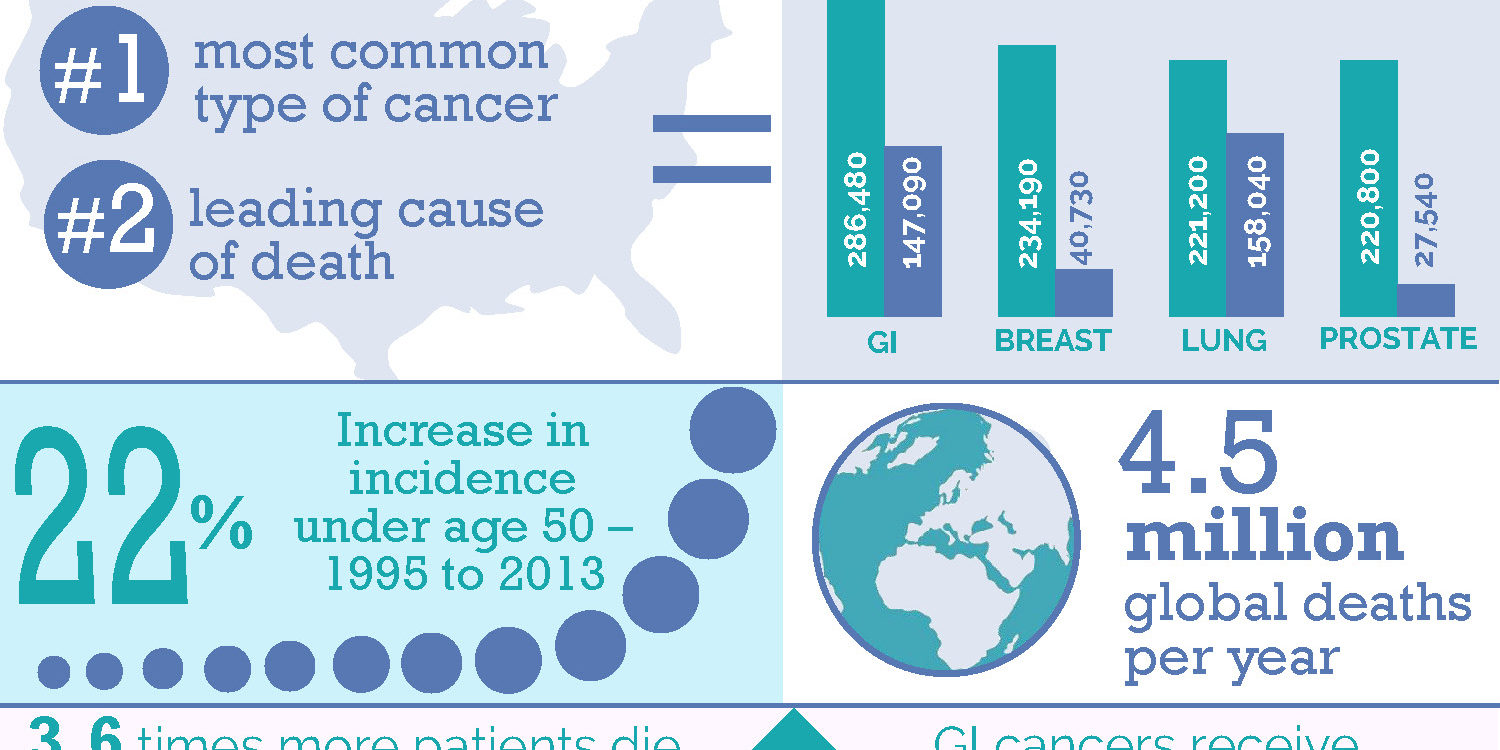Gastrointestinal (GI) cancers—including cancers of the colon and rectum (colorectal cancers), esophagus and stomach (gastroesophageal cancers), liver, gallbladder, pancreas, small intestine, appendix, and anus—collectively represent one of the greatest public health issues in the US and, indeed, worldwide—leading to almost 4.5 million global deaths in (latest data from 2013).
According to American Cancer Society (ACS) reported statistics (www.cancer.org), taken as a whole, gastrointestinal (GI) cancers have the highest incidence and are the second leading cause of cancer death (after lung cancer) in the United States (Figure 1). However, the relative proportion of government and private funding for GI cancer research does not match the problem—for example, in 2013, the NCI allocated over $100 m more to breast cancer than to GI cancer research (approximately 11.7% compared with 8.6% of their total budget) and, in 2015, ACS total funding amount by percent relevance for breast cancer was approximately $62 m compared with $43 m for GI cancers. These amounts were awarded despite the fact that, during those years, approximately 3.6 times more patients died from GI than from breast cancers. These disparities in funding seriously affect science and solutions.
We seek to rebalance our national (and global) cancer research investment toward GI cancers in keeping with the relative magnitude of the problem. Our national prioritization on breast cancer research has yielded major success for our breast cancer patients but has unintentionally left other major cancers, most notably GI cancers, far behind.
Unlike lung cancer, prostate cancer, and breast cancer, we have few insights into why GI cancers occur and how to prevent them. Among GI cancers, only colon cancer has an official screening recommendation in the US, and even this test, the colonoscopy, has sub-optimal compliance and high cost. Most significantly, due to lack of research investment, we have failed to realize major progress in treating these cancers, making them among the most feared cancers of all.


